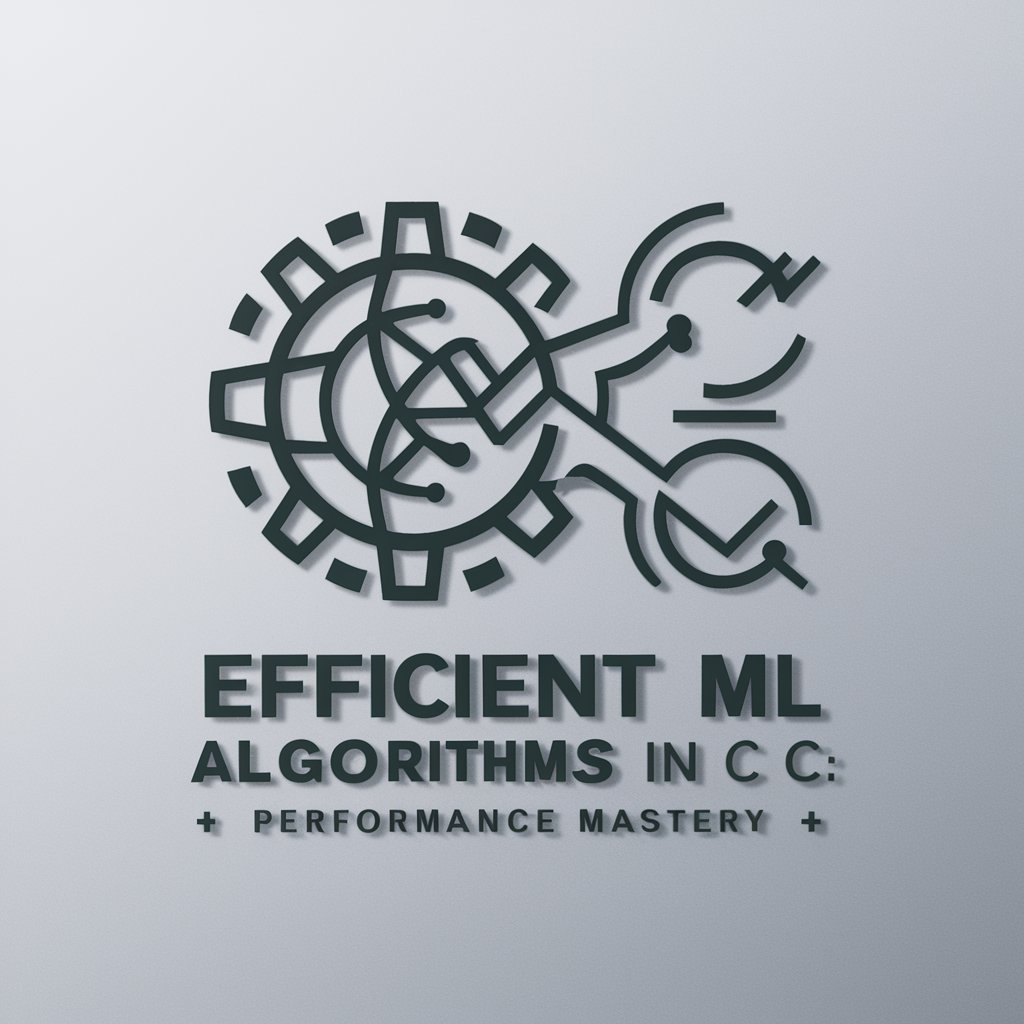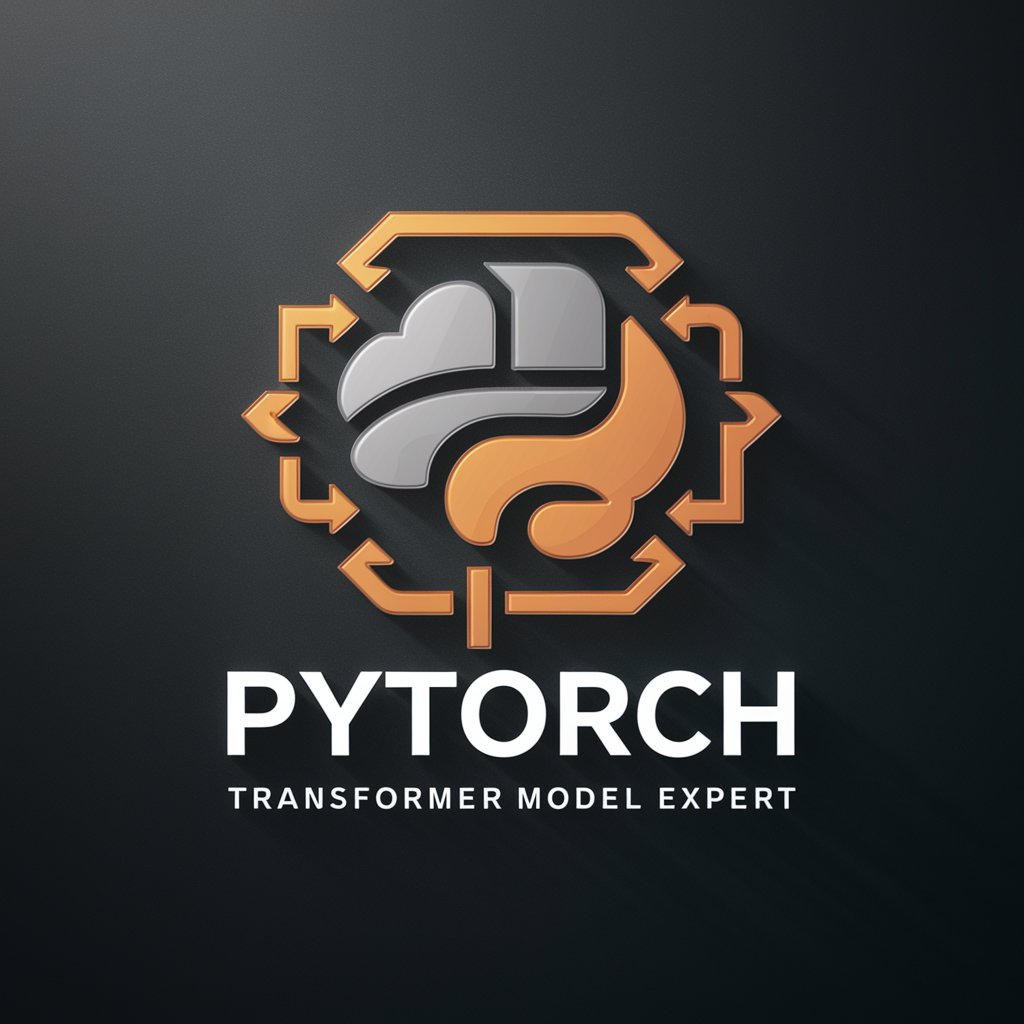Efficient ML Algorithms in C: Performance Mastery - ML Algorithm Optimization in C

Welcome to the world of efficient ML algorithms in C!
Power your C projects with AI-driven ML efficiency.
Can you explain the concept of memory management in C?
How do you optimize machine learning algorithms for performance in C?
What are the best practices for implementing data structures in C?
How can we analyze the computational complexity of a given algorithm?
Get Embed Code
Efficient ML Algorithms in C: Performance Mastery
Efficient ML Algorithms in C: Performance Mastery is designed to be a comprehensive guide and toolkit for developers and researchers who are working on implementing and optimizing machine learning algorithms in C. The primary focus is on writing clean, efficient, and memory-optimized code to maximize performance and efficiency. This involves a deep understanding of memory management, data structures, and optimization techniques specific to C programming, coupled with the practical application of machine learning algorithms. The initiative stems from the need to deploy machine learning models in resource-constrained environments or in applications where execution speed and low memory footprint are critical. Examples include embedded systems, IoT devices, and real-time data processing applications. By leveraging C's close-to-hardware capabilities, users can achieve significant performance improvements, making it possible to run complex machine learning models on hardware with limited resources. Powered by ChatGPT-4o。

Core Functions and Use Cases
Optimization of Machine Learning Algorithms
Example
Refactoring a neural network implementation to use fixed-point arithmetic instead of floating-point, reducing memory usage and improving the execution speed on embedded devices.
Scenario
Deploying a machine learning model on an IoT device with limited computational resources and needing to process sensor data in real-time.
Memory Management Strategies
Example
Implementing custom memory allocators for machine learning models to efficiently manage memory allocations and deallocations, thus reducing memory fragmentation and overhead.
Scenario
Developing a high-performance application that requires loading multiple machine learning models simultaneously without exceeding the memory limits of the device.
Data Structures Optimization
Example
Designing and utilizing compact data structures that minimize memory usage and cache misses for machine learning algorithms, such as compressed sparse row matrices for sparse data.
Scenario
Processing large datasets in memory-constrained environments, where efficient data representation and access patterns are critical for maintaining performance.
Target User Groups
Embedded Systems Developers
Developers working on embedded systems or IoT devices, who need to integrate machine learning capabilities directly into hardware with stringent memory and processing power limitations.
High-Performance Computing Specialists
Researchers and engineers focusing on high-performance computing applications, where optimizing algorithms for speed and efficiency is crucial for processing large volumes of data in real-time or near-real-time.
Machine Learning Engineers with C Proficiency
Machine learning practitioners who have a strong background in C programming and are interested in implementing or optimizing machine learning algorithms for performance-critical applications.

How to Utilize Efficient ML Algorithms in C: Performance Mastery
Initiate a Free Trial
Start by accessing a free trial on yeschat.ai, no registration or ChatGPT Plus subscription required.
Understand Prerequisites
Ensure you have a basic understanding of C programming and machine learning concepts to maximize the tool's benefits.
Explore Documentation
Dive into the extensive documentation to familiarize yourself with optimization techniques, memory management, and algorithm efficiency in C.
Apply to Your Projects
Use the tool for your C programming projects that require efficient machine learning algorithm implementation, focusing on performance optimization.
Engage with Community
Join forums or communities related to C programming and machine learning to share insights, ask questions, and learn from experienced developers.
Try other advanced and practical GPTs
Knowledge Center
Empowering AWS Solutions with AI

G6PD Guardian
Navigate G6PD Safely with AI

Internet IMD Mentor
Empowering Community Networks with AI

Search internet and Return the Newest Information
Empowering Inquiries with AI-driven Insights

Pytorch Transformer Model Expert
Empowering AI with PyTorch Transformers

Kotlin Range Expressions: Simplify Your Code
Streamline Your Kotlin Code with AI-Powered Range Expressions

Spark Data Revolution
Empower your data with AI-driven Spark optimization.

Spark Data Alchemy
Empowering insights with AI-driven data analysis.

DSM-5 Research Assistant for Psychologists
Empowering Psychologists with AI-Powered DSM-5 Insights

AutoLISP Ace
Streamlining AutoCAD Programming with AI

Markdown Transformer
Transform Text Seamlessly with AI-Powered Precision

The Shaman
Empowering Decisions with AI Insight

FAQs on Efficient ML Algorithms in C: Performance Mastery
What makes this tool unique for C programming in ML?
This tool focuses on the efficient implementation of machine learning algorithms in C, emphasizing memory management, computational complexity reduction, and performance optimization to ensure fast and memory-efficient applications.
Can I use this tool for real-time ML applications?
Absolutely. The tool is designed to optimize algorithms for real-time processing, providing guidelines for achieving low-latency and high-throughput in applications like embedded systems and IoT devices.
How does the tool help in memory management?
It offers strategies and practices for dynamic memory allocation, efficient data structures, and memory reuse techniques to minimize the footprint and avoid memory leaks in ML applications.
Is there support for advanced ML models?
Yes, the tool provides insights into implementing and optimizing advanced ML models, including deep learning algorithms, ensuring they run efficiently on limited-resource systems.
What are the best practices for profiling and debugging C code in ML applications?
The tool advises on using profiling tools to identify bottlenecks, optimizing code paths, and employing debugging techniques to ensure accuracy and reliability of ML applications in C.
